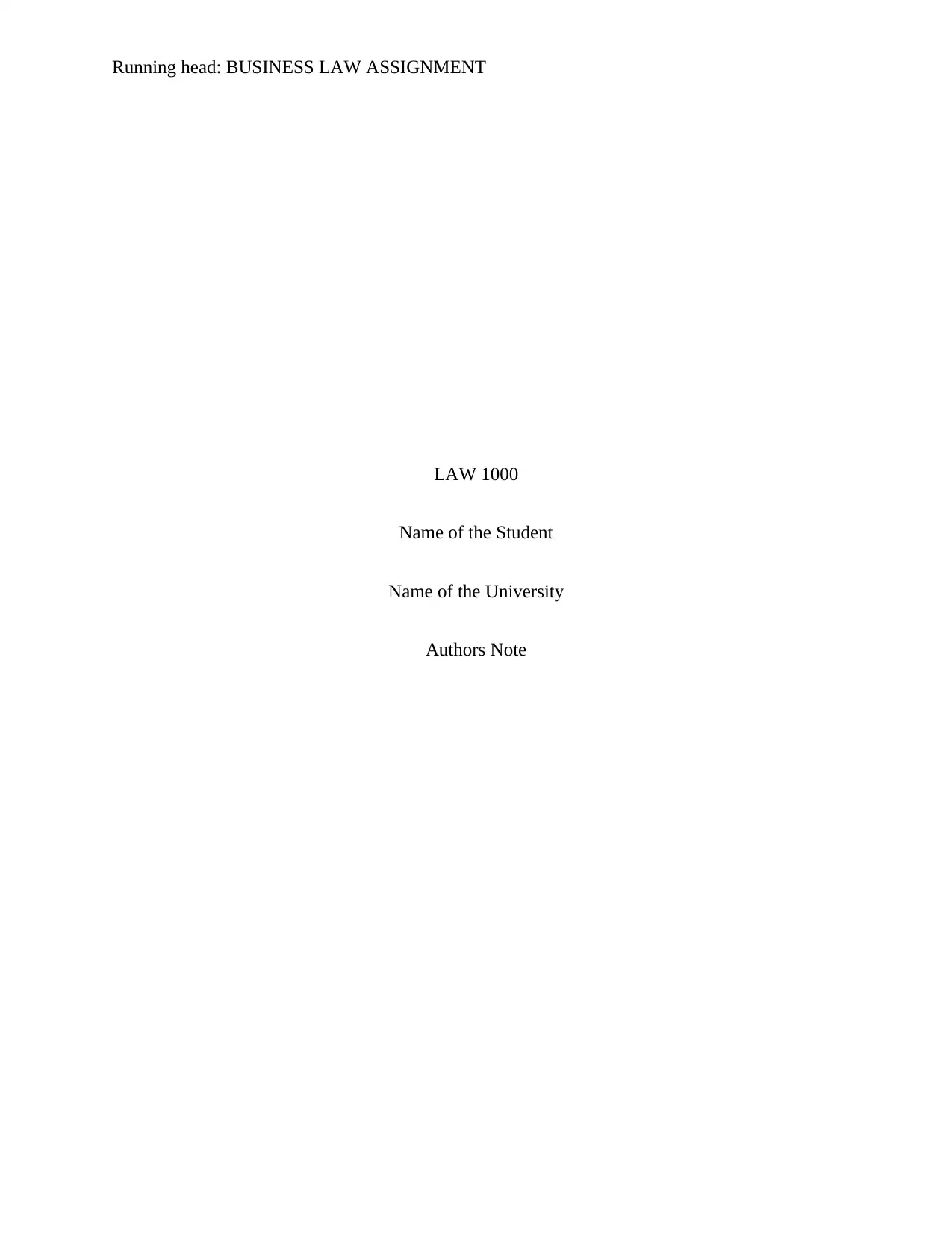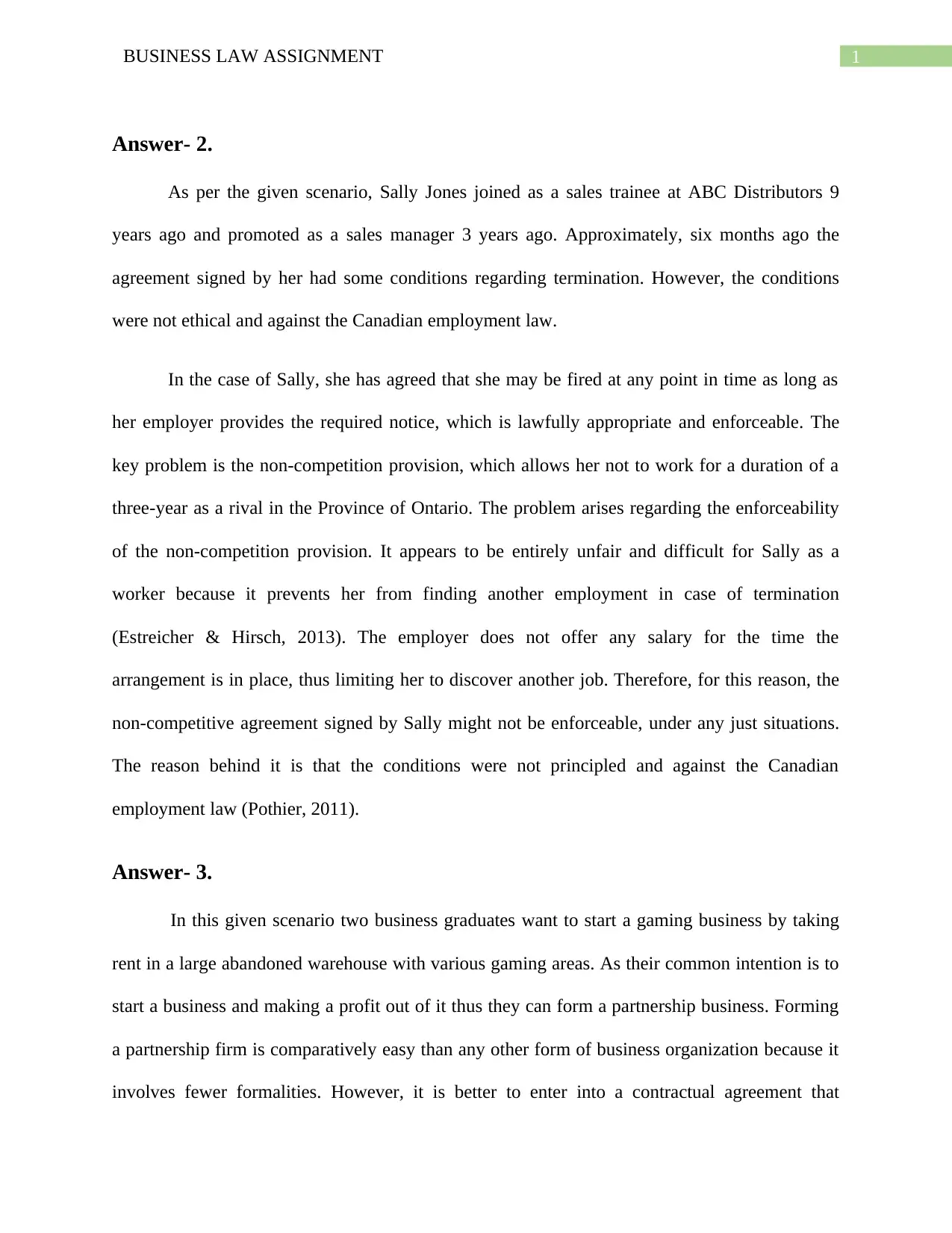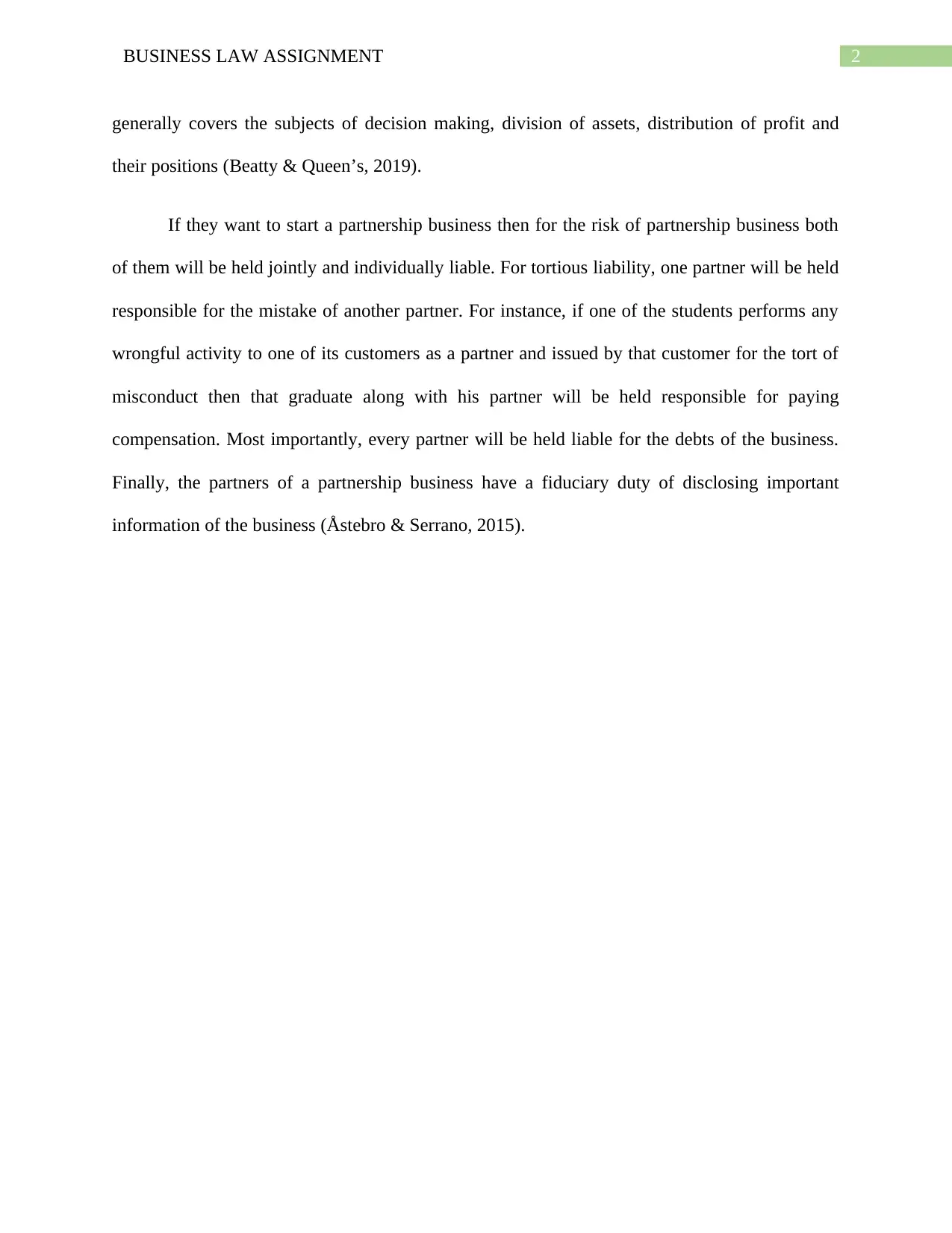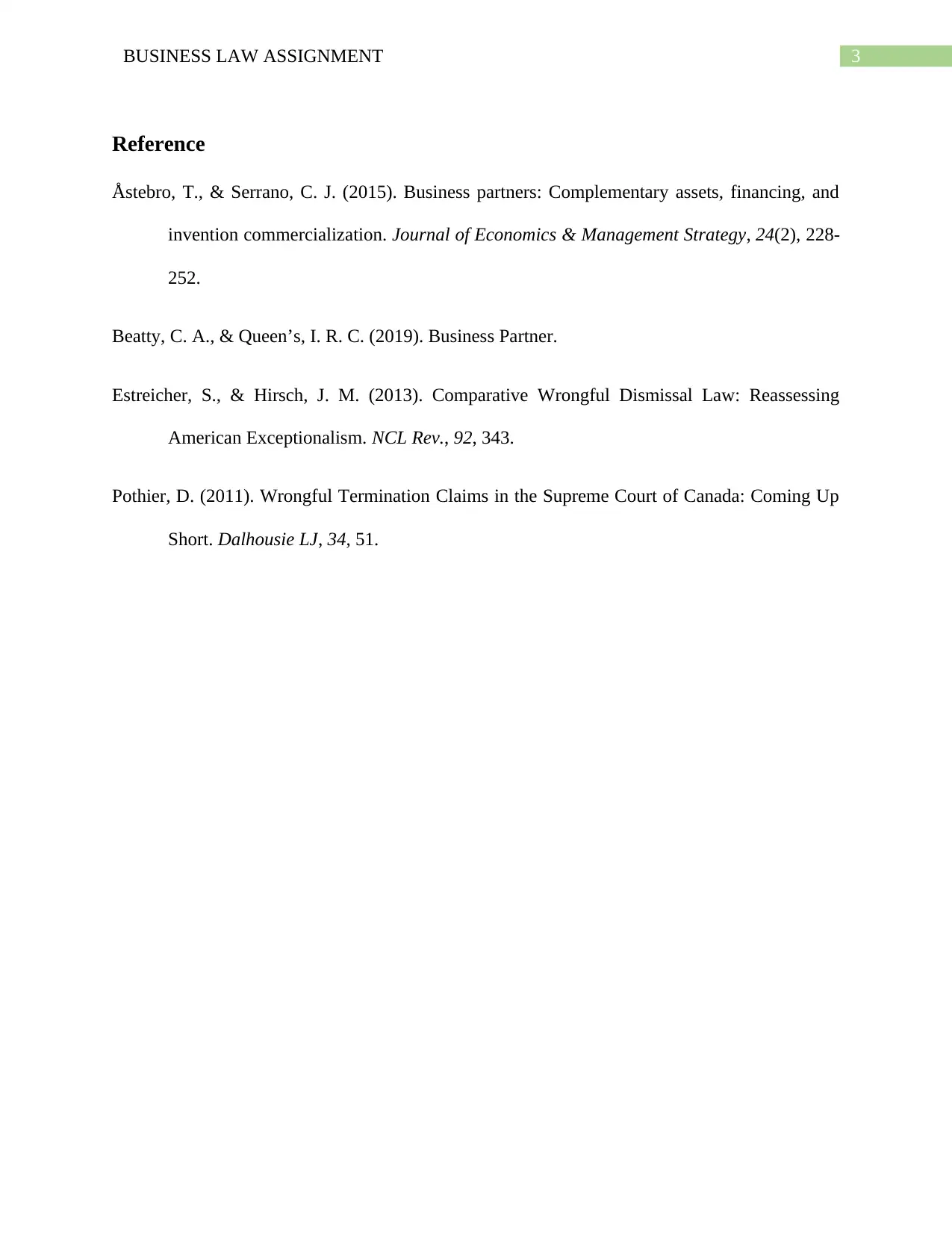Business Law Assignment: Law 1000, Chalmers University, Spring 2020
VerifiedAdded on 2022/09/01
|4
|628
|34
Homework Assignment
AI Summary
This document presents a solution to a Business Law assignment, addressing two specific scenarios. The first scenario examines the enforceability of a non-competition provision in an employment contract under Canadian law, focusing on the fairness and ethical considerations surrounding such clauses. It analyzes the potential limitations imposed on an employee's ability to seek alternative employment after termination. The second scenario explores the formation of a partnership between two business graduates aiming to start a gaming business. The solution outlines the key aspects of establishing a partnership, including the importance of a contractual agreement, the liabilities of partners (joint and several liability, tortious liability, and debt liability), and the fiduciary duties involved, such as disclosing important business information. References to legal and business literature are included to support the analysis. The assignment demonstrates an understanding of key legal principles related to employment and business partnerships.
1 out of 4






![[object Object]](/_next/static/media/star-bottom.7253800d.svg)